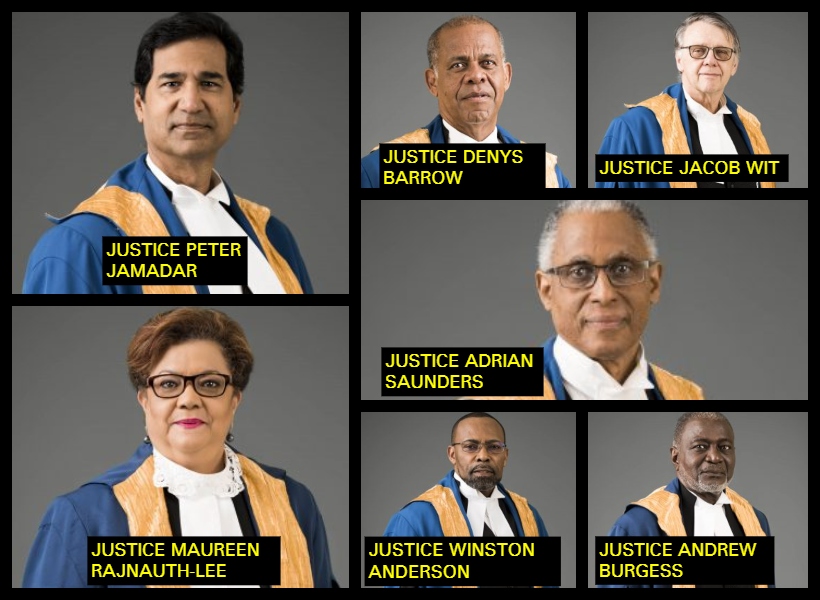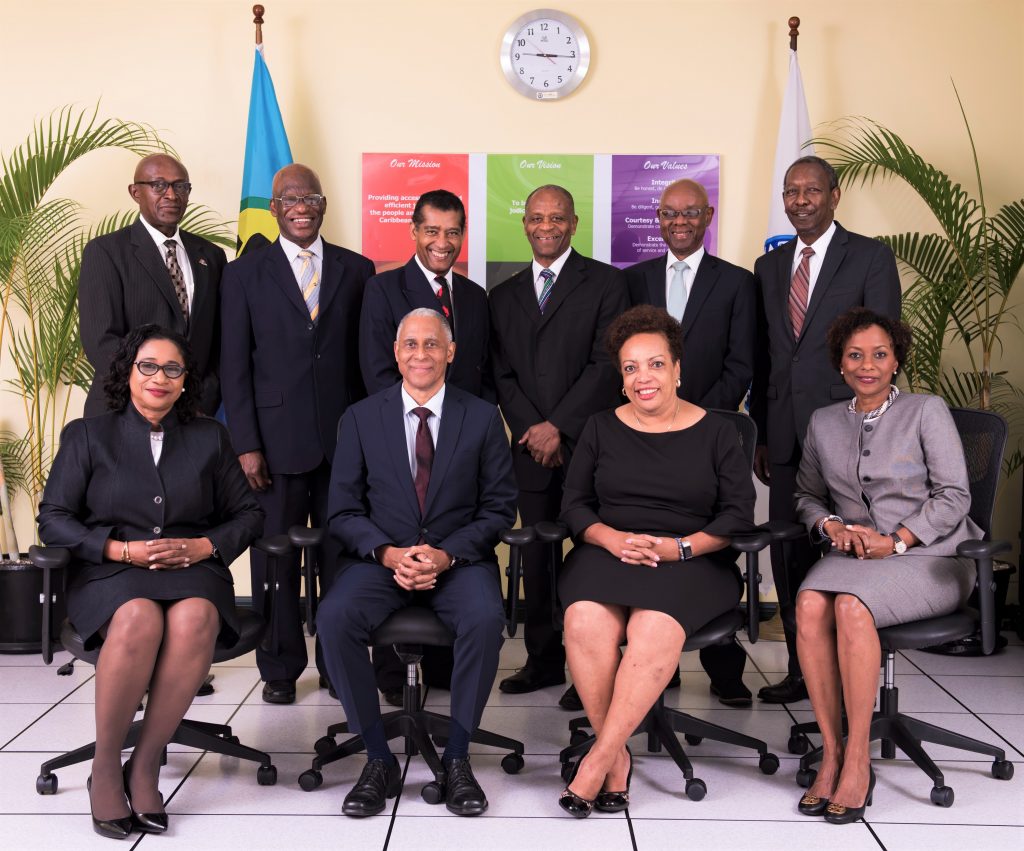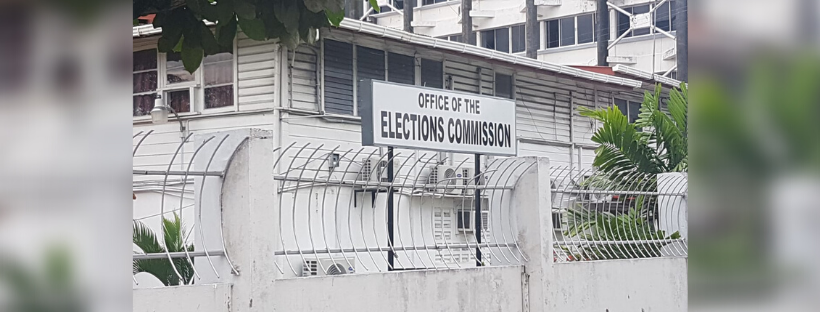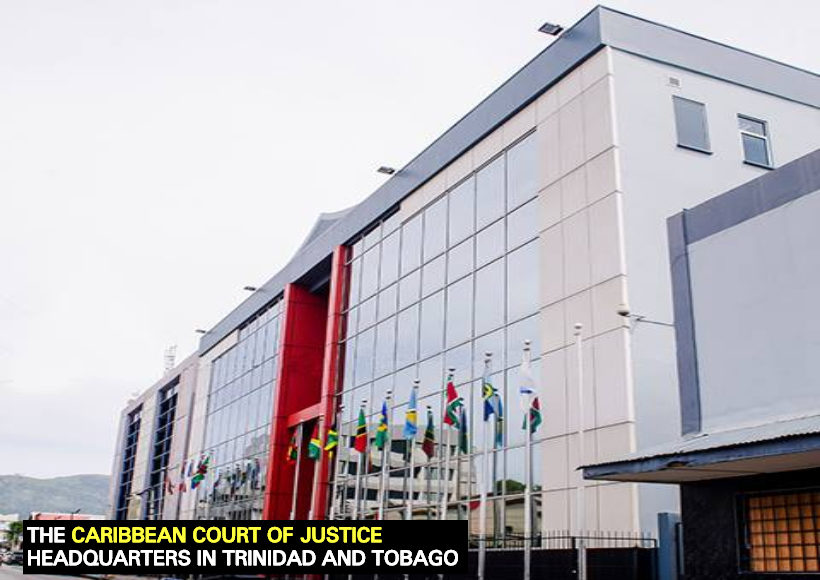Within the past week, there have been relentless attacks on the Trinidad and Tobago-based Caribbean Court of Justice (CCJ), the final court of appeal for Guyana, and three other CARICOM member states. The attacks are ahead of a highly anticipated ruling the Regional Court will deliver tomorrow, which can possibly bring an end to Guyana’s electoral impasse which has been ongoing for over four months.
Members of society, political commentators, agents of political parties, and others have taken to social media to criticize sitting Judges of the CCJ. Some of the comments, among other things, suggest that the CCJ is not free from the politicians in office, or from private or partisan interest.
The CCJ presently has a bench of seven judges presided over by its President, Justice Adrian Saunders. The other Judges are Maureen Rajnauth-Lee, Winston Anderson, Jacob Wit, Denys Barrow, Andrew Burgess and Peter Jamadar.

As recently as yesterday, the CCJ, through its former Communication and Information Manager, Charmaine Wright, explained how the Court maintains its independence. In a video posted on the CCJ’s official Facebook page, Wright disclosed that the Court maintains its independence through two institutional bodies that are separate from the Court.
The bodies she speaks of are the Regional Judicial and Legal Services Commission (RJLSC) and the CCJ Trust Fund. According to the CCJ Act, the RJLSC is responsible for making appointments to the office of the judges of the Court, other than that of the President of the Court.

L to R (Back then Front): Mr. Michael Somersall DSM; Dr. Francis Alexis PhD QC (Deputy Chairman); Mr. Delano Bart QC; Mr. Elton Prescott SC; Mr. B. St. Michael Hylton OJ QC; Hon. Mr. Justice Dennis Morrison OJ CD President CA; Hon. Mme Justice Yonette Cummings-Edwards OR CCH Chancellor of the Judiciary Guyana; Hon. Mr. Justice Adrian Saunders (Chairman) and President of the CCJ; Ms. E. Ann Henry QC; and Mrs. Susan Branker Greene MSc
According to the Court’s website, the CCJ has a Trust Fund in the sum of US$100 million, which had been given to a special Board of Trustees for financing the daily running of the Court. This money was supplied by the Caribbean Development Bank (CDB) to the Trustees, and then repaid to the CDB by those countries who are parties to the CCJ Agreement. This arrangement is very unique to Courts, as it guarantees that there is no direct political link to the finances of the Court.
According to Wright, the RJLSC and the CCJ Trust Fund are bodies that are made up of people from the region. These individuals, she pointed out, come from academia, civil society, the private sector, and also the legal fraternity. One of the missions of the RJLSC is to appoint as judges of the CCJ, persons of high moral character, intellectual and analytical ability, sound judgment, integrity and understanding of people and society.
“The RJLSC ensures that the appointment of Judges and staff is free from interference. In addition, the Judges have distinguished themselves in careers before the CCJ, have been subjected to rigorous background checks and have all signed a Code of Ethics which governs how they behave,” Wright explained.
The CCJ was inaugurated in Trinidad and Tobago on April 16, 2005. The Court has an Original and an Appellate Jurisdiction and is effectively, therefore, two courts in one.
In its Original Jurisdiction, it is an International Court with exclusive jurisdiction to interpret and apply the rules set out in the Revised Treaty of Chaguaramas (RTC) and to decide disputes arising under it. The RTC established the Caribbean Community (CARICOM) and the CARICOM Single Market and Economy (CSME).
In its Original Jurisdiction, the CCJ is critical to the CSME and all 12 Member States which belong to the CSME (including their citizens, businesses, and governments) can access the Court’s Original Jurisdiction to protect their rights under the RTC.
In its Appellate Jurisdiction, the CCJ is the final court of appeal for criminal and civil matters for those countries in the Caribbean that alter their national constitutions to enable the CCJ to perform that role. At present, four states access the Court in its Appellate Jurisdiction, these being Barbados, Belize, Dominica and Guyana.
However, by signing and ratifying the Agreement Establishing the CCJ, Member States of the CARICOM have demonstrated a commitment to making the CCJ their final court of appeal.













